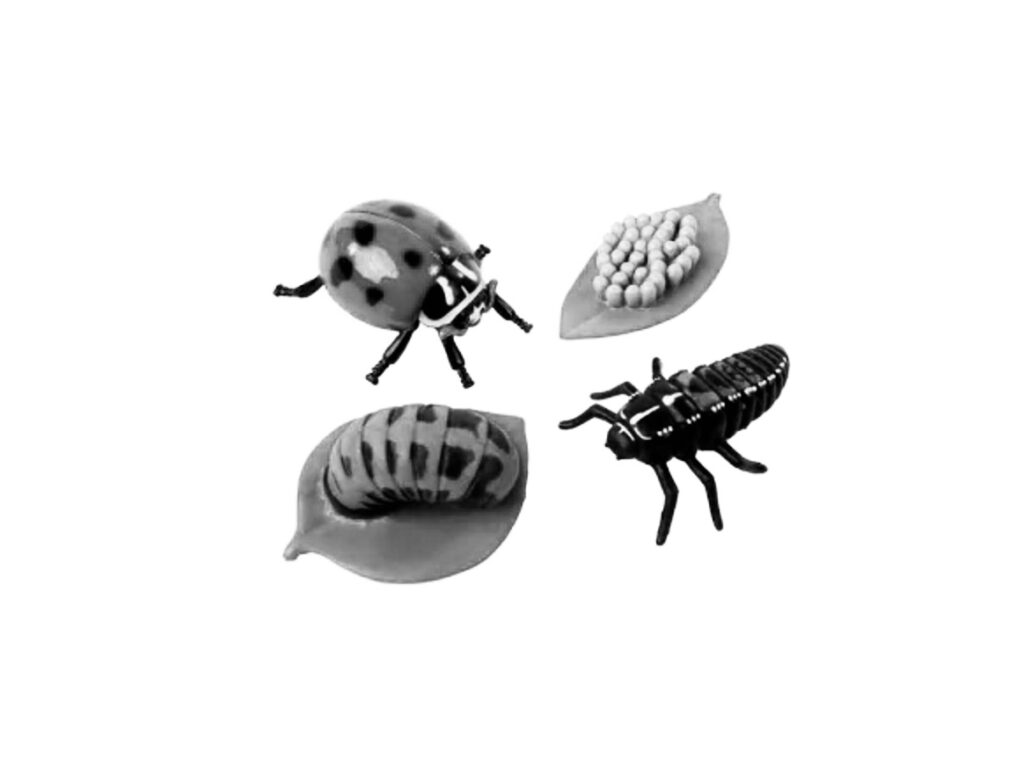
ORGANIC INSECT CONTROLS
There are too many methods of organic insect control to list in this article. Some critters can be handpicked and dropped in a cup of soapy water. A strong spray of water will help knock off aphids and mites to control their numbers. Unfortunately, they will return quickly so you may decide to use stronger control.
Even organic fertilizer and chemicals can be dangerous if not used properly. Many contain micro-organisms that you want on your plants but not in your lungs.
For an example, Neem oil is a very common and popular organic spray used to control both insects and fungus. If you take a good look at the warnings on the label, Neem oil is not as safe as people think it is.
PRECAUTIONARY STATEMENTS:
HAZARDS TO HUMANS AND DOMESTIC ANIMALS, CAUTION.
Harmful if absorbed through the skin. Causes moderate eye irritation. Avoid contact with skin, eyes, or clothing. Wash thoroughly with soap and water after handling and before eating, drinking, chewing gum, or using tobacco. Remove and wash contaminated clothing before reuse.
ENVIRONMENTAL HAZARDS
This product is hazardous to fish and aquatic invertebrates. For Terrestrial Uses Do not apply directly to water, or to areas where surface water is present, or to intertidal areas below the mean high water mark. Do not contaminate water when disposing of equipment wash water.
BEE HAZARD
This product is toxic to bees exposed to direct treatment. Do not apply this product while bees are actively visiting the treatment area.
Vegetable Insect Control Recommendations for Home Gardens
Rutgers Cooperative Extension Fact Sheet FS1123
Insect Pest Management
Home vegetable gardeners will find more than two dozen major insect and mite pests that attack various vegetable crops and damage them by feeding directly on the foliage and fruit or by transmitting plant diseases. Some insect pests are serious problems every year, while others rarely appear in the garden. There are also many insects which are beneficial and, in several instances, essential to vegetable production in the home garden. I will discuss this in more depth at the end of the article.
Frequent monitoring of the garden to detect problems at an early stage will allow you to prevent or reduce insect damage. However, for effective monitoring, the homeowner must know where and when to look for insect pests and be able to identify those that are found. Without proper identification, pest management is impossible.
Keys to Effective Management
- Thoroughly inspect plants at regular and frequent intervals to monitor any potential pest buildup. It is suggested to scout the garden at least twice weekly. Inspect plants from the bud to the soil, including both upper and lower leaf surfaces.
- Rotate the garden plot as often as possible. If the same plot is used more than one season, rotate the crops within the garden. Garden rotation is highly effective in reducing soil insect and disease problems.
- Plow or turn the soil well in advance of planting. The garden should be well plowed and free of weeds, grass, etc., at least 30 days before planting.
- Transplants should be purchased from a reputable dealer and should be free of insect pests and disease at time of planting.
- A healthy plant is often able to outgrow insect and disease attack. Use proper fertility and watering programs to maintain plant health and vigor.
- Learn to identify garden pests and beneficial organisms and consider chemicals only when a pest problem exists. Seek alternatives to chemical insecticides when possible.
- Harvest fruit, seed, pods, etc., as soon as they are ripe. Allowing overripe fruit to remain on the plants often invites additional pest problems.
- Once a plant is no longer productive, destroy it, plow it under, or remove it from the garden. DO NOT just pull it up and leave it in the garden area.
- If you use garden vegetable plants in any form to add to a mulch bed or compost bin, ensure that the material does not harbor insects, disease organisms or nematodes that will easily survive organic decomposition and cause future problems if that mulch is used in the garden.
Luckily, nature has joined us in the battle against destructive insects. Insects such as lady bugs help by eating massive numbers of insects and their larvae. These insects are classified as beneficial insects. It is good to know them so you don’t kill the good helpers along with the destructive ones.
You can find this information online or call the Garden Helpline and they will send you a color copy. This fact sheet is also educational for children.
Rutgers NJAES Fact Sheet FS295, “Beneficial Insects of the Home Garden,” may be of help in identification of these beneficial organisms.
Phone 908-654-9852, or text them atMastergardeners@ucnj.org
Happy Gardening,
James

